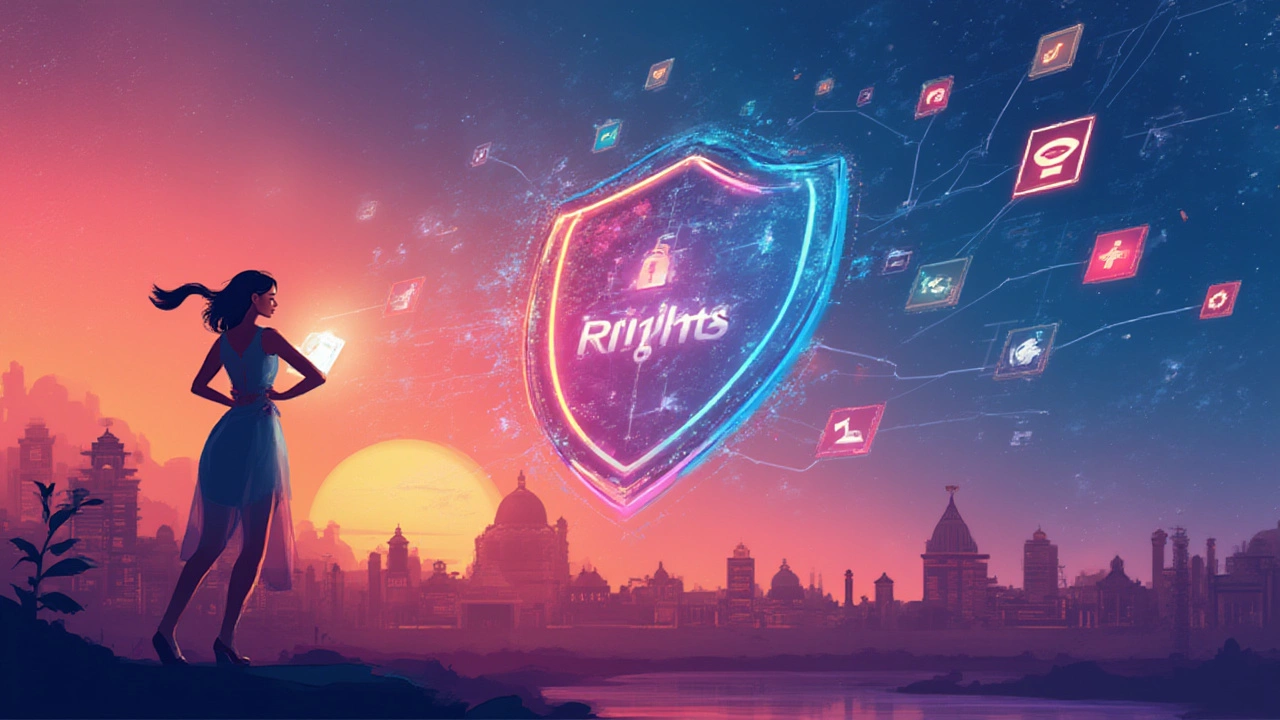Have you ever wondered how much of your personal data is floating around online right now? Scroll through your favorite apps, buy something, or just click around, and boom—a breadcrumb trail of information about you is out there. This is where the California Consumer Privacy Act (CCPA) swoops in to shake things up. Instead of leaving your info up for grabs, the CCPA hands you the steering wheel when it comes to your personal data. Passed way back in 2018 but beefed up a few times since then, the CCPA isn’t just some stuffy law no one pays attention to. It’s actually changed how companies treat your information across the U.S., not just California.
The Backbone: What is the CCPA and Who Does It Cover?
The California Consumer Privacy Act came into effect on January 1, 2020. It kicked open the doors for privacy rights in the U.S. by giving Californians some real power over their personal data. What counts as personal data? Names, addresses, online activity, phone numbers, email addresses, even things like geolocation or internet-browsing history. If a business collects it, the CCPA covers it. But it doesn't stop at companies operating in California. If your favorite online shop targets or collects data from Californians and meets certain dollar or data-size thresholds, they’ve got to play by these rules, too.
One fascinating detail: after the CCPA went live, a study from 2022 showed that more than 70% of U.S. businesses updated their privacy policies—not just companies in California. Why? Because the internet doesn’t really care about state lines, and companies want to keep a single privacy standard. That alone tells you how big of a deal the CCPA is. And the law keeps getting tweaks, like with the California Privacy Rights Act (CPRA), which added teeth in 2023, sharpening consumer rights and creating a totally new privacy agency to enforce rules.
Now, let’s break things down into the real meat: the seven fundamental rights every consumer has under the CCPA. These rights let you control, limit, or even delete what companies know about you. Understanding them isn’t just about keeping secrets—it's about knowing how to make your digital footprint manageable and less vulnerable to abuse.
CCPA’s Seven Rights: Unlocking Your Privacy Toolkit
The CCPA doesn’t drown you in legal gibberish; it hands you a toolkit. Here’s what’s in there:
- The right to know: You get to see what data companies collect about you, how they use it, and who they share it with. You can ask companies for details on the categories and specific pieces of your information they’re storing. Ever submitted a request and been shocked by the sheer volume of data? This right exposes all the details.
- The right to delete: If you don’t want a company to hold on to your info, you can tell them to wipe it. There are a few exceptions (like if they need it to finish your transaction or for legal reasons), but for the most part, you get to say what sticks around.
- The right to opt-out of sale: Hate the idea of companies selling your data to the highest bidder? You can say no. Lots of companies now display “Do Not Sell My Personal Information” links, especially after some major fines hit the news in 2024 for companies that tried to skirt this rule.
- The right to non-discrimination: Companies can’t punish you, charge more, or deny service just because you exercised your privacy rights. That means no price hikes, no downgrades, just for wanting some privacy.
- The right to correct: If a company has wrong info about you—maybe the wrong age, address, or purchase history—you have the right to get it fixed. Mistakes can be annoying, but under the CCPA, you can force companies to clean up your digital record.
- The right to limit use of sensitive personal information: This is one the CPRA tacked on in 2023. Sensitive info goes beyond typical data—think Social Security numbers, precise geolocation, health info, or even identities about your race or religion. You can now restrict how businesses use it, like telling companies not to use your location data for targeted ads.
- The right to access: While kind of a cousin to the right to know, this gives you a tangible copy of all the personal data a company has collected on you. Ever downloaded all your data from a social platform? It’s surprising, sometimes even unsettling, seeing everything they’ve got stored.
Companies must respond to your requests within 45 days. If they don't, the California Privacy Protection Agency might get involved, and they’re not shy about issuing fines. In fact, since 2024, there’s been a sharp rise in complaints leading to enforcement, so businesses actually take these requests seriously now. For those outside California—these rights may soon come to you. Sixteen other states have adopted laws inspired by the CCPA, and federal discussions are heating up.

Making it Work: How to Use Your CCPA Rights Step-by-Step
Knowing your rights is great, but how do you actually use them? Here’s a walk-through:
- Find the privacy notice: Most company websites and apps have a “Privacy Policy” link at the bottom. That’s your first stop. Look for dedicated CCPA sections.
- Submit a request: You can usually find an online form or email address to make your data request. Companies have to tell you how to do this—if they don’t, they’re already breaking the rules.
- Verify your identity: Businesses want to make sure you’re not an impostor. They’ll probably ask for some ID steps before sending over your data or deleting anything.
- Decide what you want: Are you just curious, or do you really want data deleted or corrected? Be specific in your request. Example: “Please provide a copy of all information you have on me, and delete anything unrelated to my purchase history.”
- Track the response: Remember, companies have 45 days to respond, but many do it faster to avoid trouble. If they ignore you or make excuses, you can file a complaint with the California Privacy Protection Agency.
- Look for opt-out links: Especially for “Do Not Sell My Info” or to limit use of sensitive data. These links are often easy to find but sometimes buried—search for them in site footers or your account settings.
- Rinse and repeat: You can use these rights anytime. Some people run an annual “privacy spring cleaning” by submitting requests to their most-used services. Pro tip: Set a calendar reminder to check in on your data regularly.
If you feel a business mistreats your data or ignores your requests, the CCPA lets you seek help—sometimes even through a lawsuit, especially if your personal info gets leaked through a data breach. In one high-profile case in 2024, a retail chain had to pay customers after sloppy privacy practices led to thousands of leaked account details.
Of course, the law has a few wrinkles. Certain info can’t be deleted if the company needs it to process transactions or comply with laws. And some businesses—mainly very small ones—might not fall under the CCPA.
Practical Tips: Protecting Your Data Beyond CCPA
The CCPA is a big step, but businesses still get creative with how they collect and use data. Here’s what you can do to stack the deck in your favor:
- Read privacy policies like a detective: Look for “selling of data,” “sharing,” or “third-party partners.” Translating legal mumbo-jumbo can feel like a chore, but it’s worth knowing who’s eyeballing your information.
- Use privacy settings: Most sites let you opt out of personalized ads or data sales—even if you didn’t realize it. Turn off as much tracking as you’re comfortable with.
- Be mindful about what you share: Skip unnecessary fields and forms. Stash only what you need online—leave the rest blank if it’s not required. You’d be surprised how much less hassle you’ll get from marketers.
- Monitor your account activity: If a site offers alerts for new logins or suspicious activity, turn them on. Weird logins often mean your info is being passed around.
- Take advantage of the right to access: It’s interesting to see the mosaic of info companies paint about you. If you find anything that doesn’t look right, ask them to fix or delete it.
One new wrinkle in 2025: some companies started charging more for “personalized experiences” when you opt out of data sharing. That’s where your right to non-discrimination steps in—don't be afraid to remind businesses this isn’t allowed under the law. And if you think companies are bending the truth about what info they share, call them out. The California agency’s website has simple complaint forms, and they follow up on patterns of abuse quickly.
There’s also a cultural shift: folks just aren't as comfortable handing out data as in years past. According to a Pew Research Center survey earlier this year, over two-thirds of Americans take at least one privacy-related action every month—like deleting cookies or declining targeted ads. Using your CCPA rights isn’t just for privacy enthusiasts; it’s regular, practical self-defense for everyone with an online life.
So, next time you’re browsing, buying, or signing up, remember—you're not just the product. Under the CCPA, you’re in control. Exercise those rights, make your choices, and make companies work for your trust, not just your data.
